Over the Years
Home > Over the Years > Over the Fiscal Years (2010 APR - 2020 MAR) > Three Doctors from Brazil and Belarus Invited for Training
Three Doctors from Brazil and Belarus Invited for Training
HICARE invited two doctors from Brazil and a doctor from Belarus for the training on diagnosis of radiation disorders.
Names and Titles of Trainees:
1.Maria Vera Cruz de Oliveira Castellano
Hospital of Sao Paulo’s State Government (Brazil, Sao Paulo)
Director of Pneumology Service
Period of Training: February 5 to 22, 2013
2.Alice Miyamura
Hospital Santa Cruz (Brazil, Sao Paulo)
Gynecologist
Period of Training: February 5 to 28, 2013
3.Igor Radievskij
Brest Region Hospital (Belarus)
Surgeon
Period of Training: February 5 to 28, 2013
*Training from February 18 to 22 was jointly held with three doctors from US
Training Organizations (in order of visits):
【Common Programs】
Hiroshima University Research Institute for Radiation Biology and Medicine
The 2nd International Symposium on Phoenix Leader Education Program (Hiroshima Initiative) for Renaissance from Radiation Disaster
The 3rd RIRBM International Symposium – Biological Effects of Low Dose Radiation
Hiroshima University Hospital (Advanced Emergency and Critical Care Center)
Kurakake Nozomi-en (A-bomb survivors nursing home)
Hiroshima Red Cross Hospital & Atomic-bomb Survivors Hospital
Hiroshima Atomic Bomb Casualty Council
Radiation Effects Research Foundation
Hiroshima Peace Memorial Museum and others
【Individual Programs】
Hiroshima University Hospital (Department of Obstetrics and Gynecology)…Trainee 2
Hiroshima University Hospital (Department of Gastroenterological Surgery)…Trainee 3
Training Course:
Diagnosis of radiation disorders
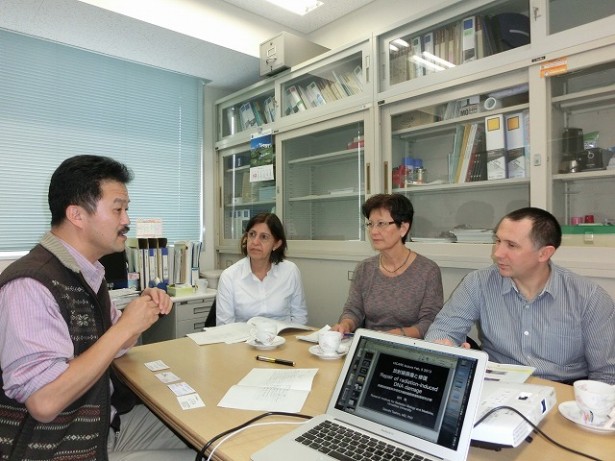
With Professor Satoshi Tashiro, Hiroshima University Research Institute for Radiation Biology and Medicine (far left)
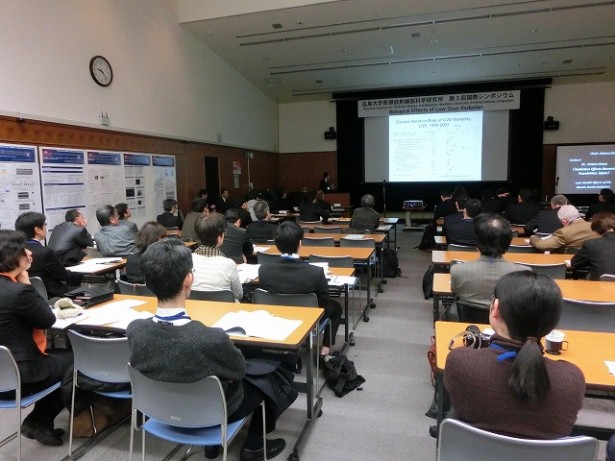
A Scene of The 3rd RIRBM International Symposium
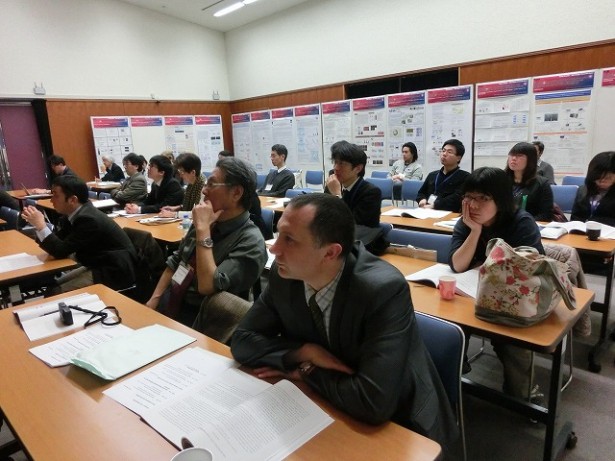
Dr. Radievskij (center in front row) participating in the RIRBM symposium
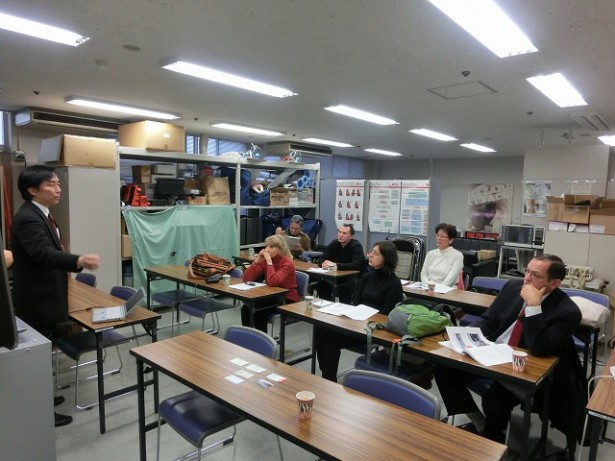
With Professor Koichi Tanigawa, Director of Advanced Emergency and Critical Care Center (far left)
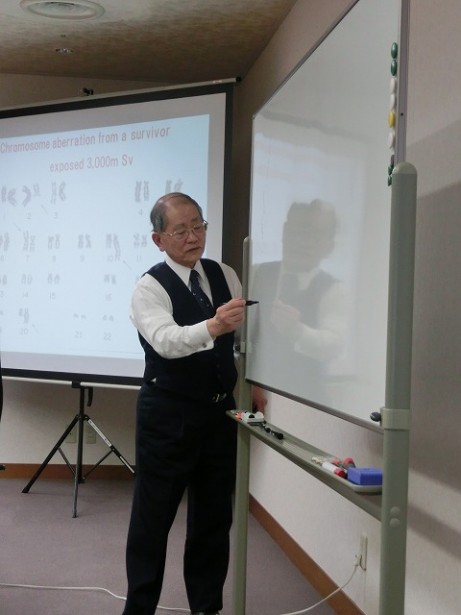
Dr. Nanao Kamada, Board Chairman of Hiroshima A-Bomb Survivors Relief Foundation in the lecture
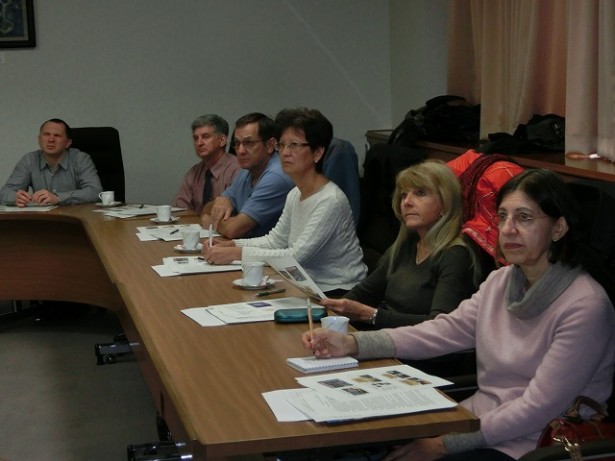
Trainees receiving a lecture of Dr. Nanao Kamada
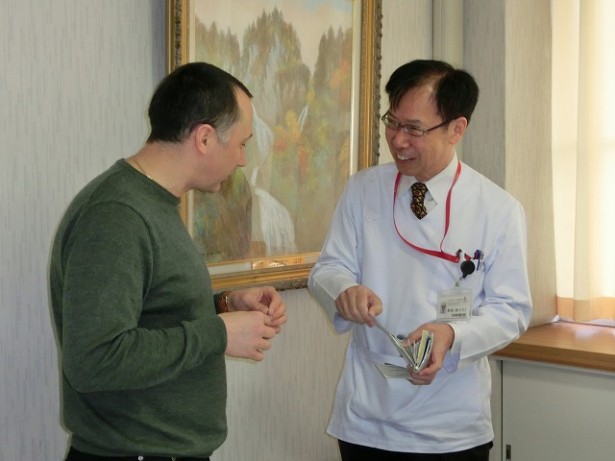
With Dr. Kenichi Arita, Director of Department of Respiratory Disease of Hiroshima Red Cross Hospital & Atomic-bomb Survivors Hospital (right)
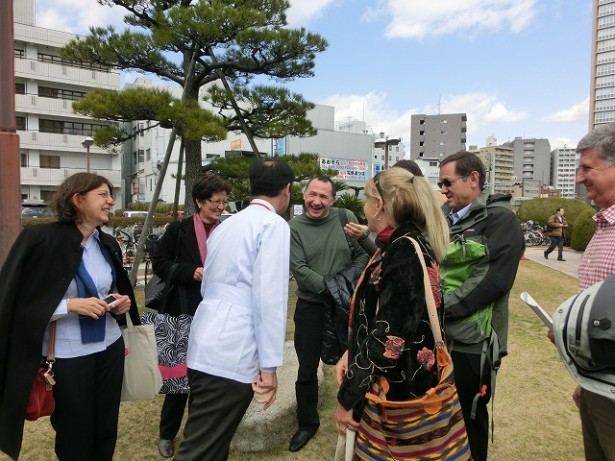
Farewell to Dr. Arita
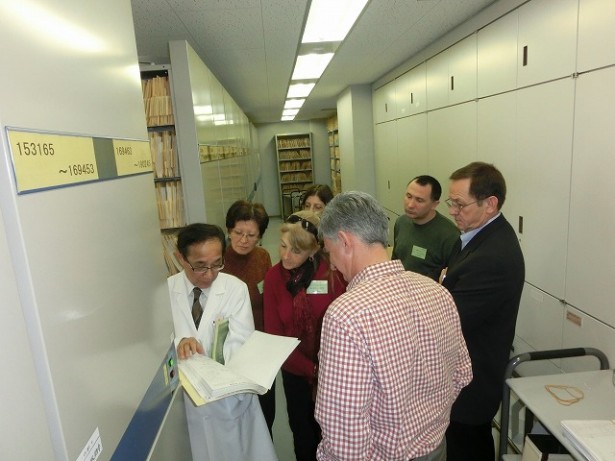
With Dr. Hideo Sasaki, Director of Health Management & Promotion Center, Hiroshima Atomic Bomb Casualty Council (far left)
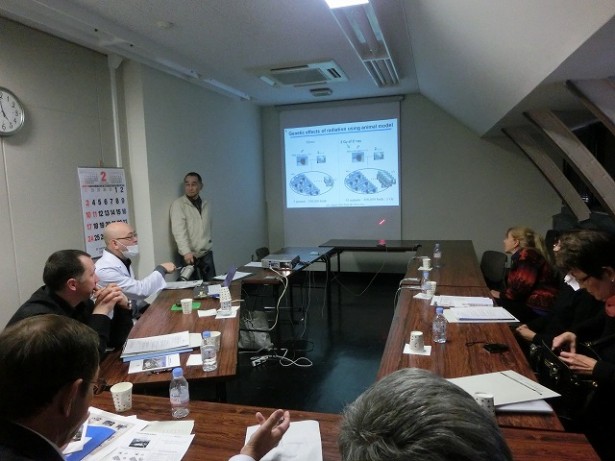
A training session at the Radiation Effects Research Foundation
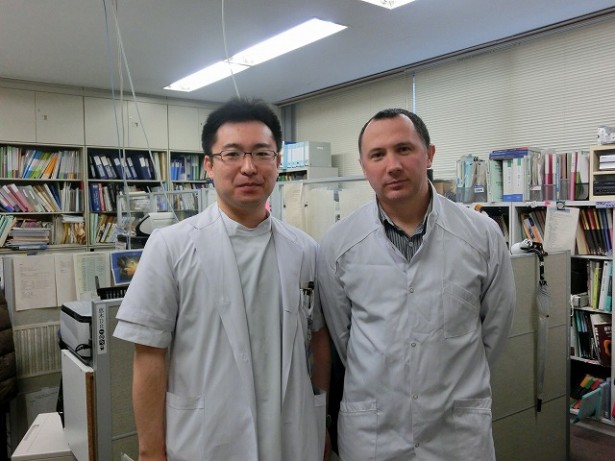
Dr. Tanabe, Dept. of Gastroenterological Surgery, Hiroshima University Hospital (left) and Dr. Radievskij
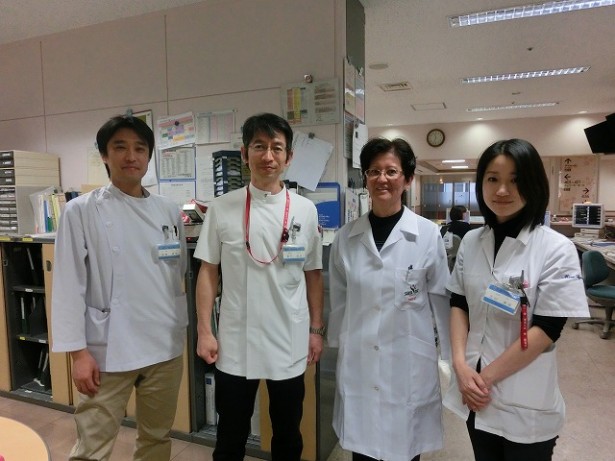
Dr. Miyamura (second from right) with doctors of Dept. of Gynecology, Hiroshima University Hospital (from left: Dr. Nobuzane, Dr. Sakashita and Dr. Egawa)
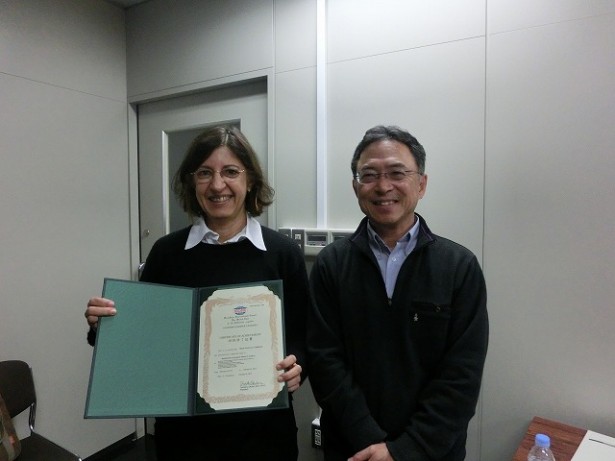
Dr. Castellano (left) receiving a certificate of completion from Assistant Department Chief Tomonori Hayashi of the Department of Radiobiology/Molecular Epidemiology, Radiation Effects Research Foundation
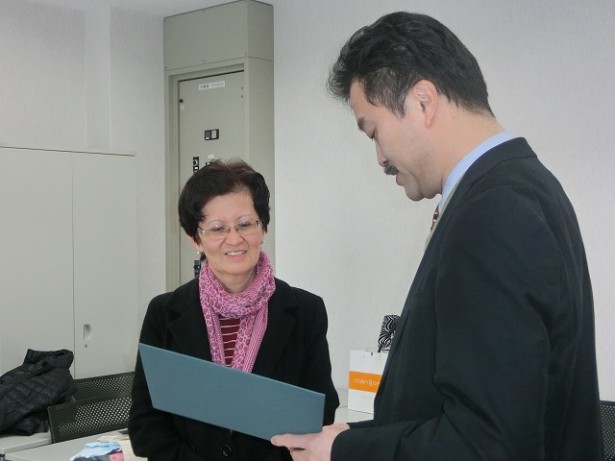
Dr. Miyamura (left) receiving a certificate of completion from Professor Satoshi Tashiro, Hiroshima University Research Institute for Radiation Biology and Medicine
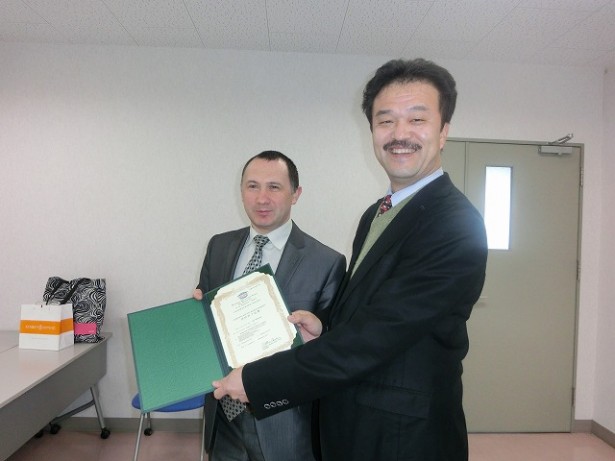
Dr. Radievskij (left) receiving a certificate of completion from Professor Satoshi Tashiro, Hiroshima University Research Institute for Radiation Biology and Medicine
Feedback:
◆Though I had many questions about the effects of ionizing radiations on human health and about how to take care of the radiation-exposed patients, HICARE Training gave me all the answers I needed. In Brazil, like in other countries, there is fear and little knowledge for dealing with nuclear questions, besides the fact that we have two nuclear plants in our country. And Brazil became ‘famous’ for the Goiania accident in 1987.
I hope to share the abundance of knowledge I gained from HICARE lectures and Hiroshima University Symposiums I attended, with my countrymen - giving classes or if possible organizing symposium about radiation effects on the human body.
HICARE Training showed us that peace is not only a word. It’s really necessary to work for peace, security and safety of “our” world.
◆In Brazil, we have almost 120 A-bomb survivors and we took care of about 40 patients at Hospital Santa Cruz, during the 2012 check-ups. As I helped to take care of some of these patients, it’s important for me to know about the proven risks of cancer in A-bomb survivors, the treatments available and other issues they may have.
Radiation is used in medical diagnosis, and radiation accidents can occur not only at nuclear plants but also at factories that manipulate nuclear devices. Therefore, I believe it is important for doctors to know about radiation, in a general way, and more specifically at medical universities.
The lectures about radiation showed me the importance of knowing about the procedures of the emergency medical support system for accidental irradiation, by sharing information, effectively using human and medical resources.
I intend to share what I’ve learned with as many people as possible.
◆The HICARE Training was very useful and informative. We got a lot of useful knowledge through interesting meetings.
The knowledge I gained in the training will help me in future work to study the growth of thyroid cancer, pancreas and liver cancer, and gastro-intestinal tract cancer caused by the effects of radiation from the Chernobyl nuclear power plant accident.
Our group comprised of doctors from different countries, and it was interesting to exchange information about each other’s practices.
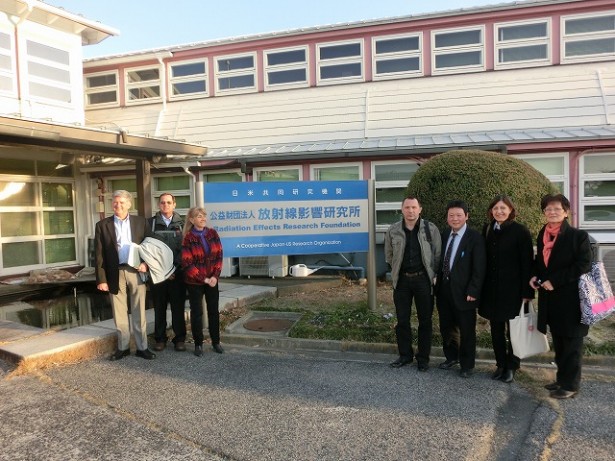
With doctors from US at the Radiation Effects Research Foundation




